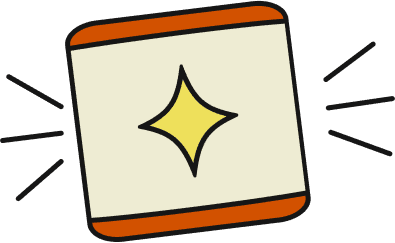And the Event Tech Tools That Make It Possible
The Challenge: Why Think Tanks Struggle to Scale
Most think tanks aren’t short on ideas. They're short on attention, access, and action.
Here’s what’s holding many of them back:
Limited visibility. Publishing a paper isn’t enough—if the right audience isn’t in the room, it doesn’t move the needle.
No structured follow-up. Hosting a webinar or roundtable is great—but what happens next? Cold silence.
Manual processes. Event RSVPs tracked in spreadsheets, email follow-ups done manually, business cards stored in pockets = no CRM, no conversion.
Difficulty proving ROI. Funders and leadership want results—but how do you prove impact from a 90-minute panel discussion?
Now, here’s the part no one tells you: events are one of the most powerful growth levers you have—if you run them right.
How Events Can Fix That
Events are no longer just “nice to have.” They’re the fastest way to:
🎯Build trust and brand authority. In-person and virtual experiences help position your think tank as the place for smart, serious conversation.
🎯Engage your ecosystem. Policymakers, academics, corporate partners, press—events bring them into your orbit, all at once.
🎯Turn insights into influence. Your latest research? Pair it with a closed-door roundtable. Or a public-facing panel. Or a stakeholder briefing with targeted attendees.
Done right, events generate thought leadership, warm leads, and long-term relationships—not just RSVPs.
Event Formats That Work for Think Tanks
Here are a few formats that work especially well (with examples):
1. Policy Roundtables
Invite key stakeholders for a focused, Chatham House-style discussion.
Example: A climate think tank hosts a roundtable with energy CEOs and government advisors to align on emission policy recommendations.
2. Public Briefings & Panels
Perfect for showcasing new research or responding to timely developments.
Example: When a new labor law passes, your team runs a webinar within 48 hours with legal experts and economists breaking it down.
3. Workshops for Policymakers or Journalists
Build capacity within your target audience.
Example: A human rights org runs media training workshops to help journalists report on refugee law.
4. Networking Dinners & Invite-Only Events
Small, curated experiences build deeper relationships.
Example: Host a private dinner after a report launch with 15 decision-makers you want to influence.
Tech That Helps: Features You Actually Need
Running meaningful events means managing guests, content, timing, and follow-up—all at scale. That’s where a purpose-built event platform comes in.
Here’s how the right tech can help:
1. Multi-Platform Event Distribution
Stop promoting your event manually on 6 channels.
A good platform distributes your event across email, SMS, LinkedIn, and more—with templates you can repurpose in minutes.
2. Automated Multi-Platform Follow-Ups
What happens after the event? Most orgs drop the ball here.
Set up automatic reminders, thank-you notes, and next steps across channels—so you never lose a warm lead again.
3. Guest Notes & Contextual Data
Who attended? What did they care about?
Capture real-time guest notes, preferences, and interactions during the event. Your sales, comms, or partnerships team will thank you.
4. Automated Check-Ins and Check-Outs
Forget clipboards and QR codes that never work.
Smooth check-in experiences = better data, higher satisfaction, and less chaos at the door.
5. Advanced Analytics
What worked? Who showed up? Who didn’t?
Get dashboards that track open rates, attendance, engagement levels, and follow-up effectiveness—all in one place.
Summary: Key Takeaways
✔ Think tanks face growth challenges—from low visibility to disjointed engagement and hard-to-measure outcomes
✔ Events help bridge the gap by building trust, influence, and meaningful relationships with the right stakeholders
✔ Great formats include policy roundtables, research briefings, training workshops, and invite-only networking
✔ Event platforms streamline the work—handling everything from outreach to guest notes to follow-ups
✔ Features to look for: multi-platform follow-ups, automated check-ins, guest profiling, and advanced event analytics
Final Thoughts
Think tanks aren’t just research factories—they’re influence machines. But scaling that influence takes more than a PDF download or a viral op-ed. It takes moments that connect the right people to the right ideas, at the right time.
With a modern event platform like Localista, you’re not just hosting better events—you’re building systems that scale. Capture every guest insight, automate your follow-ups, and finally make your events as impactful as your ideas.







